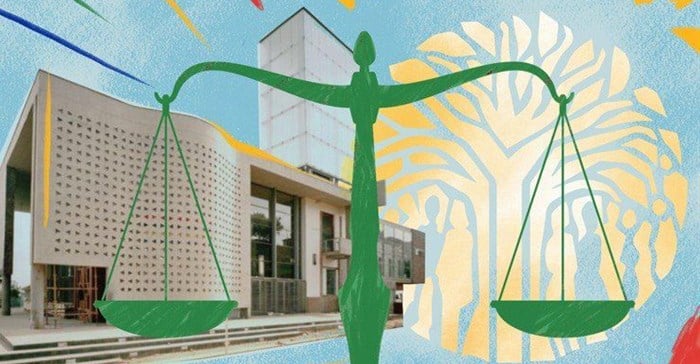
Top stories


Marketing & MediaWarner Bros. was “nice to have” but not at any price, says Netflix
Karabo Ledwaba 20 hours



Logistics & TransportMaersk reroutes sailings around Africa amid Red Sea constraints
Louise Rasmussen 13 hours

More news


















Backlash
Despite a commitment to human rights by countries across the world, activists face backlash for standing up to corporate (and state) power. In the worst cases, activists risk their lives when claiming their rights.
The assassination in October 2020 of Fikile Ntshangase, who opposed plans to extend the Somkhele coal mine in KwaZulu-Natal, has been a stark reminder of this. But corporate bullying can take many forms, including harassment on social media, surveillance, assault, unreasonable clampdown on protest, attempts to damage an activist’s reputation, and most recently, Slapp suits.
The term Slapp stands for strategic litigation against public participation. Essentially, a Slapp suit is when a powerful entity with lots of resources abuses legal processes in order to silence inconvenient opposition. The most common form is claims for defamation. For example, a mining company might sue an activist for defamation when the company doesn’t really believe that the defamation case will succeed, because it hopes to intimidate the activist into shutting up.
Another motivation behind Slapp suits is that they force activists to redirect their resources away from their activism towards defending a defamation claim. It is for this reason that they are often launched against human rights lawyers in the hopes of undermining whatever legal work they were doing which incurred the wrath of the company in the first place.
Tuesday’s judgment reminds corporations that they cannot use the law to silence activists.
In 2017, mining company Mineral Sands Resources (MSR) launched a Slapp suit against attorneys Christine Reddell and Tracey Davies (formerly from the Centre for Environmental Rights), and community activist Davine Cloete. MSR is a subsidiary of Mineral Resources Commodities (MRC), the Australian company which has persisted in its controversial attempts to mine titanium in Xolobeni in the Eastern Cape, despite strong resistance from the local community there.
In a presentation made at a summer school on mining run by the University of Cape Town, Reddell, Davies and Cloete discussed another of MSR’s operations - the Tormin mine on the West Coast near Lutzville. The university had invited Reddell, Davies and Cloete to participate because the summer school sought to incorporate the practical experiences of civil society into the curriculum. For their trouble, Reddell and Davies were each sued for R250,000 in damages and Cloete for R750,000.
This is not the only Slapp suit launched by MRC. MRC is also claiming millions of rands from Cape Town attorney Cormac Cullinan, Amadiba Crisis Committee activist Mzamo Dlamini, and social worker John Clarke.
Tuesday’s judgement by Western Cape deputy judge president, Patricia Goliath, is significant for several reasons. Firstly, the judgement confirms the critical role played by activists in holding corporations to account, finding that “[t]he social and economic power of large trading corporations renders it critically important that they be open to public scrutiny… In instances where corporates could be the main cause of damaging and destructive behaviour of the environment and biodiversity, civil society should be allowed to confront and restrain such behaviour.”
Secondly, it explicitly uses the term Slapp suit and denounces Slapp suits as a form of corporate bullying. Naming Slapp suits and characterising them as inconsistent with our constitutional framework, lends weight to the efforts of anyone pushing back against a Slapp suit in future.
Thirdly, the judgement provides key insights into how to recognise a Slapp suit. It identifies the following characteristics:
Lastly, the judgement confirms that while Slapp suits are an abuse of the law, the law itself provides ways to counter them. In the words of judge Goliath, “[c]orporations should not be allowed to weaponise our legal system against the ordinary citizen and activists in order to intimidate and silence them”.
By accepting “the Slappsuit defence”, the court has provided future targets of such suits with a legal remedy to counter them. Anyone on the receiving end of a bogus defamation claim designed to silence them, can now defend themselves by arguing that the case is a Slapp suit.
Activists working in South Africa are courageous, organised and resilient. For as long as poverty, inequality and other forms of human rights violations persist, they will continue to speak truth to power. And for as long as activists continue to do that, they will face backlash as a consequence. Now, when that backlash comes in the form of a Slapp suit, activists have a legal remedy.

GroundUp is a community news organisation that focuses on social justice stories in vulnerable communities. We want our stories to make a difference.
Go to: http://www.groundup.org.za/